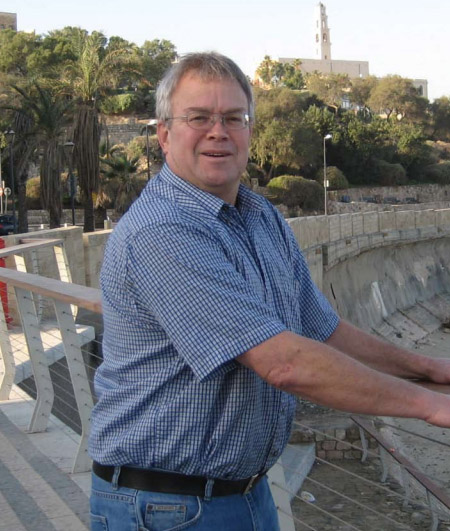Interview by Noah Graff
Today’s Machining World Archive February 2009 Volume 5 Issue 02

Israeli machinery dealer Dany Romach, originally from Argentina, has been buying and selling machine tools worldwide for 43 years. He has watched Israel’s economy transform from primarily agriculture and military to high-tech.
How did you get started as a machinery dealer?
DR: I was a teacher at a technical high school. One time we didn’t have the budget to buy a machine, but I [heard] a rumor that machines were being sold from the military industry. So I went and saw them, and on a budget for one milling machine we bought six. From there the business began. I left teaching and I started rebuilding machines.
How is business in Israel right now?
DR: I would say that it’s strong. Don’t forget that we have many factories in Israel — HP and Boeing, and many factories of household goods supplying to Wal-Mart and others in the U.S. The big advantage we have in Israel is that it’s one of the only countries in the world, like Finland or Denmark, in which the banks are very strong. There is no fiddling around with mortgages, and we have a very strong person controlling the money — Stanley Fischer. So in finance, it’s okay. It’s not okay because there is a clamp down of the stock exchange, but people believe the economy is slightly stronger [here] than in other countries.
What is the typical salary of a machinist in Israel?
DR: I would say today that if you’re a good CNC person and know how to render and [solve] problems — and you are working one or two shifts — you could end up with a $3,500 a month salary. For the simple people, who just keep the machine without programming, it’s less. It’s a good living in Israel. You can buy a house and pay a mortgage. It’s about double the average salary in the market.
Is it hard to find good CNC people in Israel?
DR: The problem is that the educational system decided about 10 years ago to shut down the technical schools that taught how to turn, mill and measure. Everybody went running for the high-tech. Now they are reopening those technical schools because they are the basis not only for industry but also for maintenance in the army and aviation, which influence all of the market.
Are there labor unions in Israel?
DR: There are. Not a lot in manufacturing, but in the ports, electric and water supply — in all the things which can strangle the country. There are no strong unions in the metal industry because there is no car manufacturing. There is no one production that keeps a big percentage of the population working — it’s thousands of small factories.
Do you think in five years there will be an official Palestinian state?
DR: No, because I truly believe that the Palestinians themselves have a problem. They are like a shot blasting machine. A shot blasting machine is a machine that is also called a “self-destructive machine.” They have too much terror in the blood. They will have some kind of autonomy, but not a state.
What would it take for them to get a state?
DR: This is very difficult question — I cannot answer this on the phone. But I will tell you one thing. [I think that] in all of the West Bank, with 2 million people, there is not even one good, modern CNC 4- or 5-axis machine. They do not know how to operate them. They don’t have the skills. They have nothing. Even in Saudi Arabia and Egypt the people who handle the machines are Indians and Pakistanis. The Arabs do not have the ability and the skills to operate CNC machines.
Thanks, Dany.
